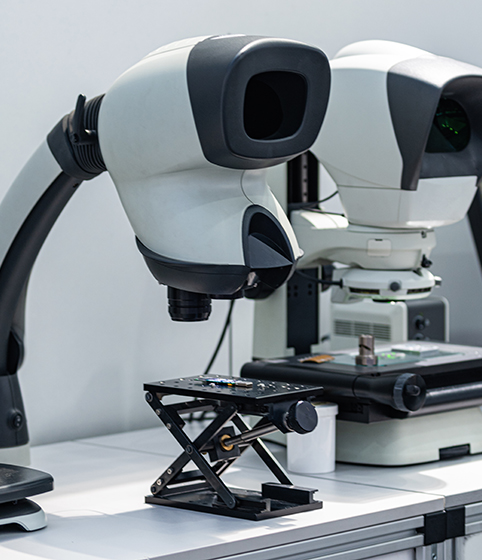Quality Inspection
- Home
- Quality Inspection
Quality Inspection
- Dimensional Inspection: Precise measurement and verification of product dimensions.
- Non-Destructive Testing (NDT): Inspecting materials and components without causing damage.
- First Article Inspection (FAI): Comprehensive evaluation of initial production samples.
- Automated Inspection: Using advanced technologies for high-speed, high-accuracy inspections.
- Sorting: Involves the meticulous examination and categorization of components or products based on specific criteria to ensure that only those meeting quality standards proceed to the next stage of production. This service helps identify and remove defective or non-conforming parts, maintaining the integrity of the manufacturing process.
- Reworking: is the process of modifying or repairing defective or non-conforming products to meet the required specifications and quality standards. This service helps reduce waste and costs by allowing products to be corrected rather than discarded, ensuring they can be used or sold as intended.
- Containment: services involve isolating and managing non-conforming products to prevent them from reaching the customer or entering the production line. This process includes immediate actions to identify, segregate, and control defective products, minimizing the impact on production and customer satisfaction.
- Audit: involves a systematic, independent, and documented process for obtaining and evaluating evidence to determine whether quality activities and related results comply with planned arrangements and whether these arrangements are effectively implemented and suitable to achieve objectives. Audits can be internal or external and are crucial for maintaining compliance and continuous improvement.
- Quality Document Development & Review: This service includes the creation and assessment of quality-related documents such as standard operating procedures (SOPs), work instructions, quality manuals, and inspection checklists. Ensuring these documents are accurate, comprehensive, and up-to-date is essential for maintaining high standards and regulatory compliance.
- Liaison: services involve acting as an intermediary between different parties, such as between manufacturers and suppliers or between companies and their clients, to ensure smooth communication and resolution of quality issues. This role is critical in facilitating collaboration, addressing concerns, and ensuring that quality standards are upheld across the supply chain.
- Supplier Quality: services focus on managing and improving the quality of products and components received from suppliers. This includes supplier audits, performance evaluations, quality agreements, and development programs to ensure suppliers meet the required standards and contribute to the overall quality of the final product.
- Problem Solving: services involve identifying, analyzing, and resolving issues that affect product quality or manufacturing processes. Utilizing methodologies such as Root Cause Analysis (RCA), Failure Mode and Effects Analysis (FMEA), and Corrective and Preventive Actions (CAPA), this service aims to eliminate defects and enhance process efficiency, ensuring continuous improvement.

